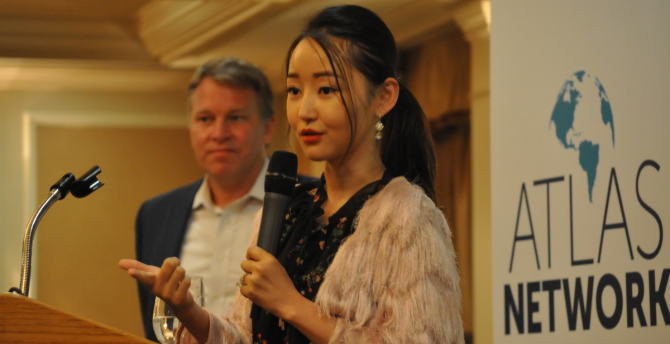
Last night Atlas Network hosted Yeonmi Park at our September Global Policy Perspectives event in New York City. Park is a well-known human rights activist and North Korean refugee. After escaping the country and adjusting to life in the West, she began delivering speeches to the international public, including several talks for Atlas Network in the Fall of 2014. Also in late 2014, the video of her deeply personal speech at One Young World went viral, with millions of views to-date. Park released her searing memoir In Order to Live: A North Korean Girl’s Journey to Freedom in 2015 with Penguin Publishers. More recently, she became the president of Freedom for North Korea, which connects philanthropists who want to help the people of North Korea with local NGOs that help refugees (which are often unprepared to market their work to English-speaking audiences).
In her speech at Atlas Network’s Global Policy Perspectives event, Park mentioned a few questions people often ask her, among them a question asking why North Koreans don’t rise up against the regime. Her response: “How can you fight for your freedom when you don’t know you are a slave?”
Park detailed how North Koreans are inculcated with propaganda that claims North Korea is the most prosperous country in the world — that North Korean citizens do not realize the magnitude of the state of poverty in which they live.
Since her own personal story is widely known, Park focused on the conditions of roughly 300,000 North Korean defectors currently living in China — most of them women. She also said that despite a recent détente in U.S.-North Korean relations and a public relations “charm offensive” at the 2018 Olympics, conditions for the North Korean people remain at abysmally low levels. Respect for human rights remains nonexistent, and several of Park’s relatives have disappeared in recent years as she has become a vocal critic of the regime and wider-known advocate for human rights protections in the country.
While the state of existence for millions of North Koreans continues to be appallingly unacceptable, Park is working to improve the lives of the hundreds of thousands of North Koreans who have made it out of the country.